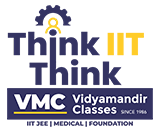Crafting Tomorrow’s Leaders: The Transformative Role of Values in Education
 Posted On
Posted On
110 total views, 1 views today
Unlocking the full potential of education requires a shift beyond traditional academic pursuits. While mastering subjects like mathematics and science is vital, the journey to a well-rounded education extends far beyond the confines of textbooks. Today, educators and parents are increasingly acknowledging the pivotal role of values—such as empathy, kindness, honesty, and integrity—in shaping the next generation. This paradigm shift not only propels students towards academic excellence but also equips them to make meaningful contributions to society. Let’s delve into the profound impact of incorporating values into our educational framework and explore both the why and how of seamlessly integrating them into the curriculum.
The Imperative of Values in Education:
Values serve as the guiding principles that steer us through life’s complexities, shaping our character and influencing our decisions. In the contemporary world, where students encounter diverse cultures and face multifaceted challenges daily, a mere focus on academic proficiency falls short. Values such as empathy, kindness, honesty, and integrity are no longer mere virtues; they are imperative for navigating ethical dilemmas and fostering meaningful connections in an interconnected society.
Integrating Values into the Educational Fabric:
Recognizing the indispensability of values in education, schools must embrace values-based education as a fundamental pillar, not an optional add-on. The question then becomes: How can educators seamlessly weave values into various subjects and lessons? The process commences with intention and creativity, wherein educators play a pivotal role by incorporating real-life examples, open discussions, and ethical dilemmas into the educational landscape.
Strategies for Seamless Integration:
- Classroom Learning Activities: Utilize diverse educational sources such as biographies, stories, literary texts, parables, quotations, and poems to instill values.
- Practical Activities: Empower students through hands-on experiences like community projects, awareness campaigns, mindfulness practices, and student-led initiatives.
- Socialized Techniques and Activities: Foster values education through group-oriented techniques such as dramas, plays, role-playing, and presenting students with exemplary role models.
- Incidental Learning: Reinforce values by addressing real-life incidents, acknowledging right actions, and appropriately responding to negative behavior.
Assessing Value Integration:
Assessment becomes a crucial aspect of this integration, ensuring that values are not merely discussed but genuinely shape students’ behaviors and choices. Surveys, self-reflection exercises, and peer evaluations serve as effective tools for gauging the impact of values-based education, making it a continuous and evolving process.
The Power of Experiential Learning:
While classroom teachings lay the groundwork, values are best learned through real-world experiences. Experiential learning projects bridge theory and practice, allowing students to witness the tangible impact of their actions, transforming values into guiding principles that influence their daily choices.
Project Ideas for Developing Values:
- Collection Drives: Instill empathy and kindness by organizing collection drives for essential items to help the less fortunate.
- Volunteering: Foster empathy and responsibility by encouraging students to volunteer at local organizations or community events.
- Environmental Projects: Instill values of responsibility and stewardship through projects focused on environmental conservation and sustainability.
- Cultural Exchange Programs: Cultivate empathy and respect for differences by organizing cultural exchange programs.
- Ethical Business Ventures: Teach honesty, integrity, and responsible entrepreneurship by encouraging students to start small ethical businesses.
- Peer Mentorship Programs: Promote kindness, empathy, and leadership through peer mentorship programs within schools.
Encouraging Student Participation:
To maximize the impact of value-centric projects, active involvement and support from educators, parents, and the community are essential. Leading by example, educators can motivate students, while parents and the community play pivotal roles in reinforcing values at home and providing resources for student initiatives. Recognizing and celebrating students’ achievements in value-centric projects enhances motivation and reinforces their sense of purpose.
Final Thoughts:
In a world where knowledge is readily accessible, values emerge as the differentiator. The integration of values into education is not merely an option; it is a necessity. Values serve as the cornerstones of a better society. By infusing values into the curriculum and engaging students in value-centric projects, we nurture well-rounded individuals who not only excel academically but also contribute positively to their communities and the world at large. The transformative journey towards crafting tomorrow’s leaders begins with the intentional integration of values into the very fabric of education.



